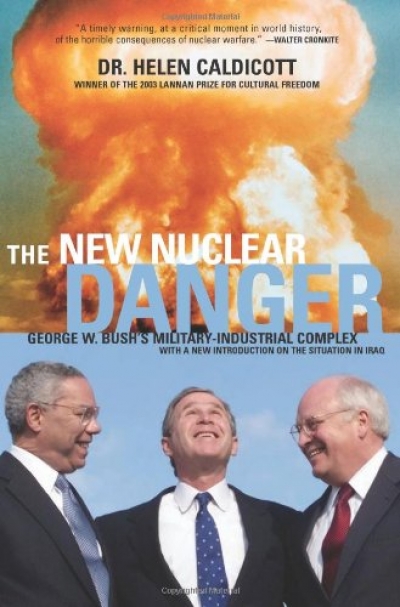



The referendum on amendments to Egypt’s constitution on March 26 went almost exactly as expected by most independent observers. The turn-out was almost non-existent, as a result of an opposition boycott and widespread cynicism about the referendum.
The fact that virtually every regime in the Muslim world, except the Islamic state of Iran, is a dictatorship of some kind or other is widely recognized. In the last month, we have seen high-profile protests against the authoritarian rulers in Egypt and Pakistan. Similar protests, usually on a smaller scale, are commonplace in both countries and in many other Muslim countries.
For years the Arab League has been a symbol of the incompetence and impotence of the Arab states. Every time there has been a major issue in the Muslim world, the League has met and done absolutely nothing of note. Yet now, for some reason, the summit that is taking place in Riyadh at the end of March (as this issue of Crescent goes to press) is being hailed around the world as crucial for the future of the region
That the Muslim world is engulfed in numerous crises is not in doubt; what is debated is who is responsible for this state of affairs and how to rectify it. There are some—Muslims and non-Muslims—who put all the blame on the Muslims; others say it is the direct result of colonialism and continued foreign interference in the internal affairs of Muslims
Iqbal Siddiqui on the desperate need of an Islamic movement in Pakistan..
Something easy to get is easy to lose, as the Japanese say. Their neighbors the Chinese would say: the lone sheep is in danger of the wolf. The ancient wisdom of these people is not lost on Muslims of Imam Husain’s heritage. Our only Islamic Revolution and Islamic state (as imperfect as they appear from time to time) were not easy to come by; and therefore should not be easily relinquished.
In last month’s issue of Crescent International we published an article about an anti-war conference convened in Malaysia by former prime minister DR MAHATHIR MOHAMAD. We received this letter in response, which we are publishing in full.
Although they are usually secretive in their dealings, the Saudis are showing far too much political activism these days to go unnoticed. The Arab League is holding its summit in Riyadh on March 28-29 (after Crescent press time), and the top item on the agenda is the Arab regimes’ desire to recognise Israel.
Already beset by numerous problems, both domestic and international, Pakistani president General Pervez Musharraf has shot himself in the foot again by taking on the country's judiciary as well. Justice Iftikhar Mohammad Chaudhry, the Chief Justice of the Supreme Court, was sent home for allegedly "abusing his authority", and placed under virtual house arrest.
There is hardly any doubt that the majority of the people in the three Maghreb countries – Algeria, Morocco and Tunisia – believe their leaders to be autocratic, corrupt and closely allied with the West against Islamic groups in the region. Add to this belief the fact that wealth in all three countries is monopolised by rich elites, while most people are deprived and poor, and it becomes plain why there is so much popular resistance to the ruling elites and the long-serving rulers they maintain in power.
On March 1, Russian president Vladimir Putin, having accepted President AliAlkhanov’s resignation two weeks earlier, nominated acting president Ramzan Kadyrov (pic right, with Putin) for the presidency of Chechnya. Shakhid Dzhamaldayev and Muslim Khuchiyev were also nominated as a purely formal gesture. The next day, the nominations were taken to the Chechen parliament, where Kadyrov was confirmed as the next president; 56 of the 58 votes cast were for the Kremlin-backed Kadyrov, one MP voted against and one abstained.
To assess whether the Horn of Africa is the "hottest conflict zone in the world" – as some analysts have called it – it is enough to list the countries that constitute it and examine their relations with the US, which has a huge and disruptive influence in the region. Ethiopia, Eritrea, Djibouti, Somalia and Kenya are generally known as the components of the Horn, but neighboring Sudan and Uganda are so closely linked to them and embroiled in their conflicts that they are now also widely regarded as Horn countries.
Nothing resonated at the regional conference held in Baghdad last month more than the barbs exchanged by American and Iranian officials attending the conference. Yet the mere fact that officials from both countries agreed to take part in the meeting provided a window of opportunity for more substantive contacts between them over Iraq. A second meeting is expected to take place at the level of foreign ministers in Istanbul in early April.
President Pervez Musharraf’s dismissal of the country’s Chief Justice last month has developed into a major political crisis. DR PERWEZ SHAFI of the Institute of Contemporary Islamic Thought (ICIT) in Pakistan discusses the implications of the crisis.
The genocide of Tutsis in Rwanda by the country’s Hutu majority in 1994 remains one of the most shocking events in recent history. But the actual killings were rooted in social and particularly cultural factors. KAYITANA KA RUTERANDONGOZI, a Rwandan Muslims now living in Canada, discusses the cultural roots of the Rwandan genocide.
The New Nuclear Danger: George W. Bush’s Military-Industrial Complex by Dr Helen Caldicott. Pub: The New Press, New York, 2004. Pp: 304. Pbk: US$17.95.

